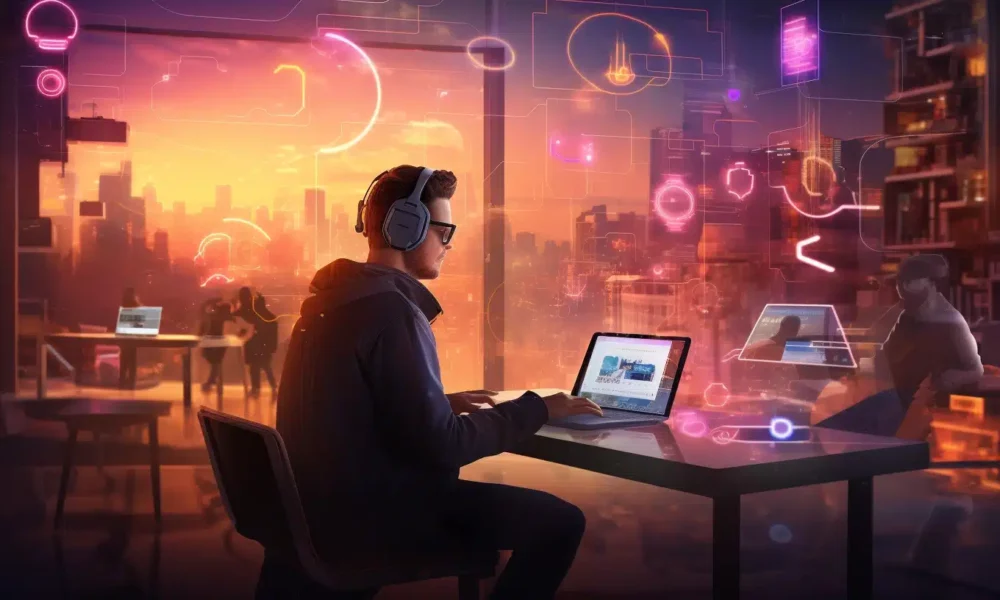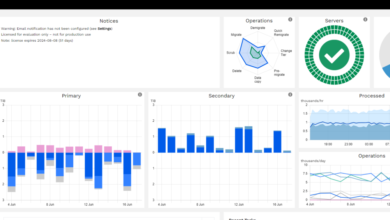The Future of Digital Collaboration Tools in a Decentralized World

In the rapidly evolving digital landscape, the tools that enable collaboration are becoming more advanced and integrated into our everyday lives. With the rise of decentralized technologies, the future of digital collaboration is set to transform in unprecedented ways. This article explores how decentralized systems are reshaping digital collaboration tools, offering a glimpse into what the future may hold.
Decentralization: The Foundation of Future Collaboration
The Shift Towards Decentralization
Decentralization is changing the way we think about ownership, control, and access in the digital world. Traditional centralized systems, where a single entity has control over data and operations, are being challenged by decentralized alternatives that distribute power and responsibility across multiple participants. This shift is driving innovation in digital collaboration tools, enabling more secure, transparent, and resilient platforms. Go to Finance Phantom trading and make an account there.
Security and Transparency in Collaborative Workflows
One of the most significant benefits of decentralization in collaboration tools is enhanced security and transparency. In centralized systems, data breaches and unauthorized access are common concerns. Decentralized platforms, however, offer increased security by distributing data across a network of nodes, making it more difficult for bad actors to compromise the system. This not only protects sensitive information but also ensures that all actions within the collaborative environment are transparent and verifiable.
The Rise of Smart Contracts in Collaboration Tools
Automating Agreements and Processes
Smart contracts are self-executing agreements with the terms of the contract directly written into code. These contracts automatically enforce the agreed-upon rules without the need for intermediaries, making them an ideal fit for digital collaboration tools. By integrating smart contracts, collaborative platforms can automate various processes, such as task assignments, payments, and project milestones, ensuring that all parties adhere to the agreed-upon terms.
Enhancing Trust and Accountability
In collaborative environments, trust and accountability are critical. Smart contracts enhance both by ensuring that all participants are bound by the same rules, with no room for manipulation or disputes. This level of automation and transparency fosters a more collaborative and trustworthy environment, where everyone involved can focus on their tasks without worrying about the integrity of the process.
Decentralized Autonomous Organizations (DAOs) and Collaboration
The Emergence of DAOs
Decentralized Autonomous Organizations (DAOs) represent a new paradigm in organizational management. Unlike traditional organizations, DAOs operate without a central authority, with decision-making power distributed among the members. This model is particularly well-suited for digital collaboration, as it allows for a more democratic and inclusive approach to project management and decision-making.
How DAOs Are Revolutionizing Collaborative Projects
DAOs are transforming collaborative projects by enabling participants to contribute and make decisions without the need for a central authority. This not only democratizes the collaborative process but also allows for more efficient and flexible project management. As DAOs become more prevalent, we can expect to see a rise in collaborative tools designed to support these decentralized organizations, offering new ways to manage and execute projects on a global scale.
The Role of Tokenization in Digital Collaboration
Incentivizing Participation and Contribution
Tokenization is another key component of the future of digital collaboration. By creating digital tokens that represent value or utility within a platform, decentralized systems can incentivize participation and contribution. These tokens can be earned, traded, or used within the platform, offering participants tangible rewards for their efforts.
Facilitating Peer-to-Peer Transactions
Tokenization also facilitates peer-to-peer transactions within collaborative environments. Whether it’s compensating team members, purchasing services, or accessing premium features, tokens provide a seamless and secure way to exchange value without relying on traditional payment systems. This not only streamlines the collaborative process but also reduces the barriers to entry for participants from different parts of the world.
Privacy and Data Ownership in a Decentralized Future
Empowering Users with Data Ownership
In traditional centralized systems, users often have little control over their data, with ownership and access rights typically held by the platform provider. Decentralized systems, however, empower users by giving them full ownership and control over their data. This shift is particularly important in collaborative environments, where sensitive information is frequently shared and accessed by multiple parties.
Ensuring Privacy in Collaborative Environments
Privacy is a growing concern in the digital world, and decentralized systems offer a robust solution to this challenge. By allowing users to maintain control over their data and who has access to it, decentralized collaboration tools can ensure that privacy is maintained without sacrificing functionality or convenience. This not only protects users but also fosters a more secure and trustworthy collaborative environment.
Conclusion
The future of digital collaboration tools lies in the adoption of decentralized technologies. By embracing decentralization, we can create more secure, transparent, and inclusive platforms that empower users and enhance collaboration. As smart contracts, DAOs, tokenization, and data ownership become integral to these tools, the way we work and collaborate will be fundamentally transformed. The journey toward a decentralized future is just beginning, and those who embrace it will be at the forefront of the next wave of digital innovation.
Read More From Techbullion And Businesnewswire.com





